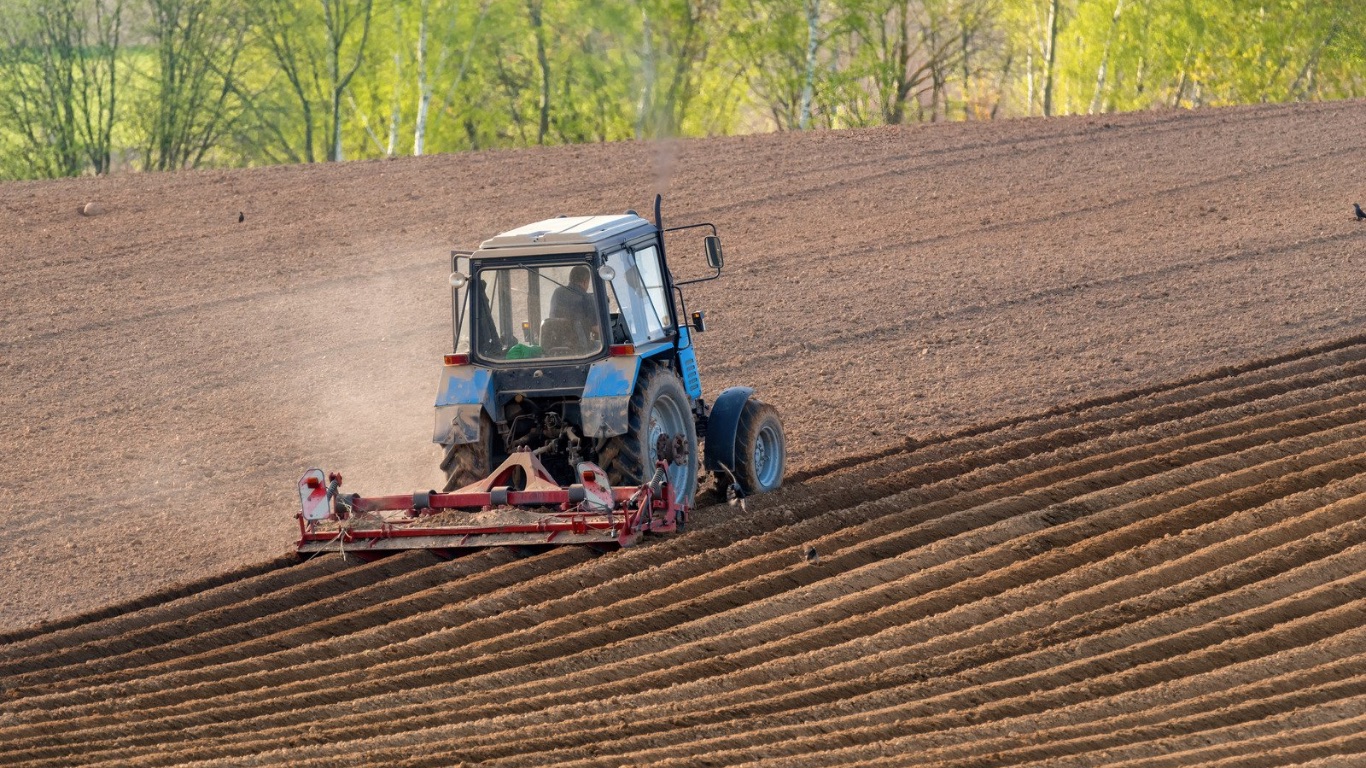LACK OF PLANMING AND MONOPOLIES - PROBLEMS THAT HAVE FERMERS

Last year, the President of Tajikistan exempted farmers from paying land taxes for one year.
This tax ranged from 156 to 200 somoni per hectare, amounting to a total of 256 million somoni. Did this government relief bring any ease to the farmers?
According to farmers, no problem was solved; on the contrary, a new one emerged. For example, the rising cost of mineral fertilizers, the shortage of seeds for planting, the high price of fuel, and so on. This year, a 50-kilogram sack of mineral fertilizer has reached 600 somoni or more. What is the reason for this price increase?
The sale of both domestic and imported mineral fertilizers is monopolized by those close to the government. The government does not allow anyone to import these products at lower prices from other places. For example, a sack of mineral fertilizer in neighboring Uzbekistan is two to three times cheaper. Uzbekistan is willing to sell this product to its neighbors, but the monopoly of those close to the government has blocked this path. The State Antimonopoly Agency of Tajikistan ignores this. It’s better to say that this agency lacks the power to combat this illegal practice.
Even though farmers and heads of farming associations are calling on the government to control the prices of goods, as soon as control is introduced, prices continue to rise.
Another problem for farmers is the burdensome state taxes, which are driving farming associations and individual farmers into bankruptcy.
For example: A farmer has a 15-hectare plot of household land. Every year, he pays taxes on this land. He also pays for the water used in cultivation or for a few fruit trees. He pays taxes on the income from his orchard.
I heard a story that surprised me. A man from Khatlon region recounted that he was picking apricots from a tree near his house. At that moment, a tax inspector came to his house. He says that someone must have reported to the tax office that this man was picking apricots.
- "You will pay five thousand somoni in tax for the apricot harvest, or I won't let you pick the fruit and take it to the market," the Tax Committee representative said.
- "Brother, this apricot tree itself is not worth five thousand somoni."
In the end, after a long verbal dispute, the Tax Committee representative handed the farmer a document and said:
- "Here, take this receipt, go to the bank, and pay two thousand somoni!"
This man went to the bank. When processing the payment, the bank employee asked him, "Shall I transfer the money to this phone number?" The farmer replied, "I don't know, the tax inspector told me to."
From this story, I realized that the money did not go to the state budget but to the personal account of the Tax Committee employee. "It happens" is the president's favorite phrase.
We talked about monopolies. The Tax Committee of Tajikistan is also a monopoly. Almost all tax inspectors, especially those collecting taxes in the districts, are from the Kangurt district of Khatlon region. In Tajikistan, nepotism and regionalism have become common. Whoever becomes a minister, head of a department, or committee, the first thing they do is "restructure." They dismiss former employees under various pretexts and replace them with their relatives.
Another problem for farmers is the ever-increasing price of diesel fuel. Last year, one liter of diesel fuel cost 7 somoni. Now this price has reached 12 somoni. Farmers can no longer afford to buy fuel.
While farmers are transferring money to the personal accounts of Tax Committee employees, according to experts from the Agricultural Research Institute of the Academy of Sciences of Tajikistan, 90 percent of the farming associations in the mountainous areas of the republic are using oxen for plowing instead of tractors. Moreover, farmers do not have access to quality and productive seeds.
According to experts from the Ministry of Agriculture, there are currently 90 seed-producing associations in Tajikistan, which can only supply seeds to 50 percent of the farming associations.
Another unresolved issue is irrigation in the republic. According to Kholmurod Rahmonov, head of the Irrigation Agency, to address the shortage of water and irrigation, especially for cleaning irrigation canals, 750 million U.S. dollars are needed.
The main problem for farmers in Tajikistan is the lack of a clear and well-defined government program in this area. Farmers base their planting decisions on market conditions. There are no clear guidelines for crop regulation. As a result, one year there is a shortage of onions, the next year potatoes, and the following year carrots. For example, last year there was no shortage of potatoes. Now the price of one kilogram of potatoes has reached six somoni.
If the government had a clear program for crop planting, these shortages in the market would not occur. According to experts, with such a program, Tajikistan could fully supply itself with agricultural products.
Hikmat Darvesh



